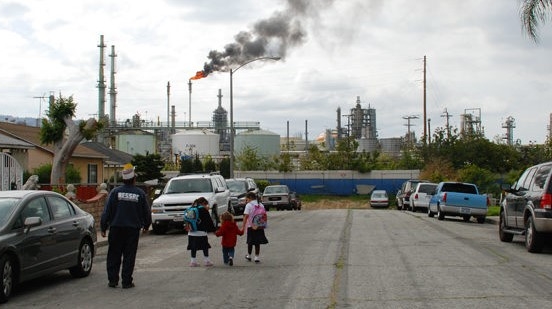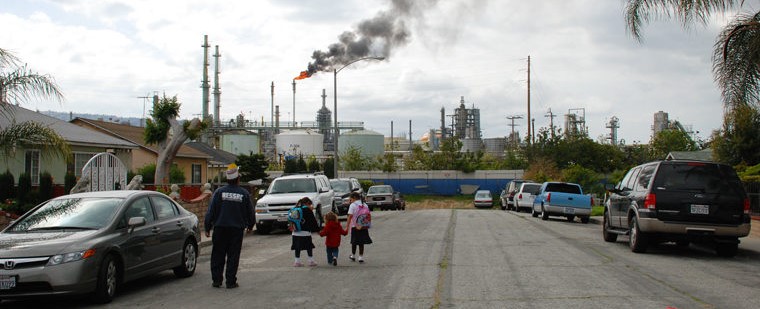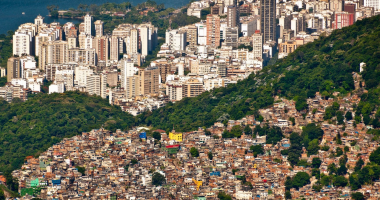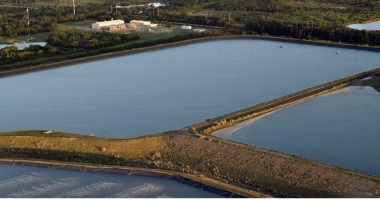Climate, Health and Equity Brief
Strokes, asthma and injustice
September 25, 2020

The Climate, Health & Equity Brief is GMMB’s take on the week’s news on the current impacts of climate change. If you haven’t subscribed yet, you can do so by clicking here.
Hot Topic: Environmental injustice. As we approach one month since the Pacific Coast wildfires first began, health systems in the Western U.S. are reporting alarming surges in hospitalizations connected to poor air quality, including a 43 percent increase in strokes and other cerebrovascular incidents. Doctors also issued renewed warnings that prolonged exposure to smoke and ash-filled air could intensify asthma among children and increase pregnancy complications for expectant mothers.
Unfortunately, the health impacts of the wildfires don’t stop at air pollution. Straight from the “just what we needed, something new to worry about” department, hundreds of residents in California’s Santa Cruz mountains are currently under a “do not drink” advisory after fires melted much of the plastic piping in the area, contaminating the drinking water supply with benzene, a known carcinogen.
Still further developments this week underscore the fact that the burden of toxic pollution is not evenly shared. While many wealthier families have purchased expensive air purifiers or retreat to vacation rentals or second homes to escape wildfire smoke, those with lower-paying jobs and inflexible work conditions—including a disproportionate number of people of color—have been forced to stay put and contend with the multiple health complications posed by exposure to toxic pollution.
This particular scourge, of course, is not limited to the impact of wildfire smoke. Activists expressed outrage this week following the revelation that a gas plant owned and operated by the city of Los Angeles has been leaking methane for almost three years, polluting surrounding communities made up primarily of Latino and low-income families already dealing with some of the state’s dirtiest air.
Meanwhile, a new report from the American Lung Association found that just one change to our current practices—transitioning to a fully electric transportation system—could decrease U.S. greenhouse gas emissions by 90 percent in the U.S. by 2050, illustrating just how much public health can benefit from ambitious climate action.
In good news, promises around climate action were on full display during this year’s virtual Climate Week, with governments and corporations alike announcing ambitious commitments to achieve carbon neutrality in the coming decades. The question is, will they be a case of too little, too late?
—Matt & Traci, GMMB
Health
As a new analysis revealed that one in seven Americans have experienced dangerous air quality from wildfires this year, doctors in the Western U.S. are reporting an alarming surge in hospitalizations, including a 43 percent increase in strokes and other cerebrovascular incidents. (NPR, The Guardian)
One month after wildfires first started in the Western U.S., doctors warn that prolonged exposure to smoke and ash could exacerbate asthma in children and increase the risk of pregnancy complications for expectant mothers. (The New York Times, San Francisco Chronicle)
Hundreds of residents in California’s Santa Cruz mountains are under a “do not drink” advisory after the CZU Lightning Complex fire burned plastic piping in the area, contaminating drinking water with the cancer-causing chemical benzene. (E&E News)
After becoming the ninth storm to make landfall in the U.S.—the most ever in a single season—Tropical Storm Beta has caused flash flooding in Texas and is expected to dump up to 20 inches of rain across the northeast through the end of the week. (The Washington Post)
A recent report found that transitioning to a fully-electric transportation system in the U.S. by 2050 could decrease greenhouse gas emissions by 90 percent. (Mashable)
Equity
New Jersey Governor Phil Murphy has signed landmark environmental justice legislation to curb new sources of industrial pollution that disproportionately impact low-income, immigrant and minority communities in the state. (Reuters)
While many wealthy families flee poor air quality in the Western U.S., Black and Latino families who tend to have lower-paying jobs and inflexible work conditions are left to face elevated health risks from toxic smoke. (Investigate West, The Washington Post)
Climate activists are calling for a Los Angeles gas plant to be shut down after discovering that it has been leaking methane and polluting surrounding Latino and low-income communities for three years. (Los Angeles Times)
Check out our interview with Lisa Hoyos, director of the Climate Parents program at the Sierra Club, about why it is so important to mobilize parents and families in the fight against climate change and for climate justice. (GMMB)
Politics & Economy
A major new study revealed that environmental rollbacks under the Trump administration will pump an extra 1.8 billion tons of greenhouse gas emissions into the atmosphere by 2035. (Politico)
Even in the midst of a raging wildfire season and unprecedented Atlantic storm season in the U.S. this year, climate change has been left out of the chosen topics for next Tuesday’s Fox News-hosted presidential debate. (Grist)
Action
A group of 12 global cities—including the U.S. cities of Los Angeles, New Orleans, New York and Pittsburgh—committed to divesting from fossil fuels and ensuring that public funding will support a green recovery from COVID-19. (AP News)
In two statewide climate announcements this week, California Governor Gavin Newsom issued a first-in-the-nation mandate restricting new car sales to zero-emissions vehicles only by 2035, and Michigan has committed to achieving carbon neutrality by 2050. (Los Angeles Times, Reuters)
The EU has announced a new target to cut 55 percent of greenhouse gas emissions by 2030, adding to its broader European Green Deal program aimed at achieving carbon neutrality by 2050. (EurActiv)
A number of corporations also announced major climate commitments this week, including a pledge from Walmart to achieve net-zero emissions across its global operations by 2040 and a $1.2 billion pledge from Unilever to fund global nature regeneration projects. (Axios, Our Daily Planet)
Kicker
Looking for something to watch this weekend? Check out this new documentary that explores how regenerative agriculture can help safeguard the climate and feed the world.
“Our lives begin to end the moment we become silent about things that matter.”
– Martin Luther King Jr.

)





